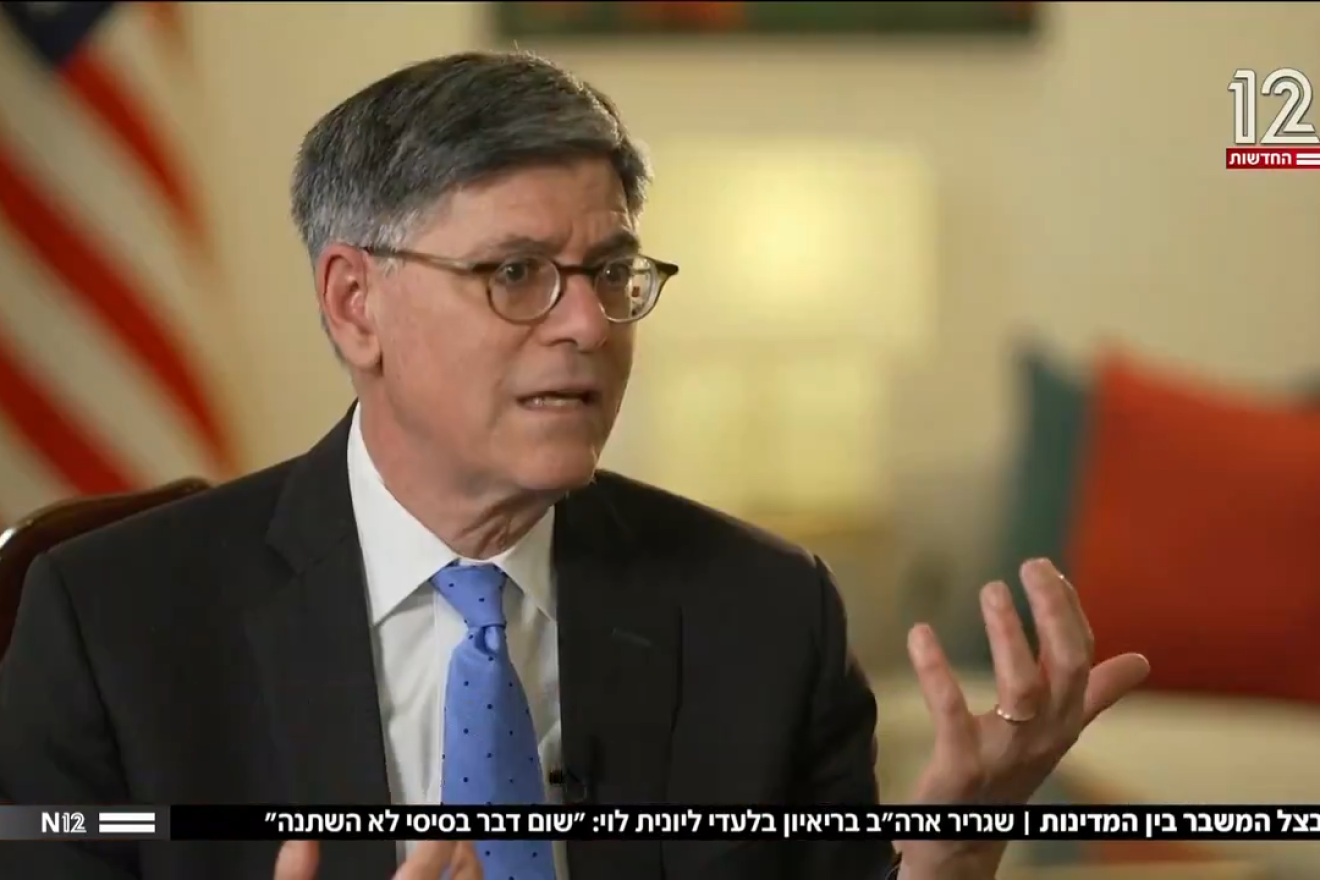Washington has no “real disagreements” with Israel over its targeted raid in eastern Rafah and war aim of destroying the remaining Hamas battalions in Gaza’s southernmost city, U.S. Ambassador to Israel Jack Lew claimed in an interview with Channel 12 on Sunday.
The interview came just days after U.S. Secretary of Defense Lloyd Austin confirmed that the Biden administration decided to withhold approval of a sale to Israel of two types of precision-guided bombs.
Biden also told CNN last week that he would stop providing weapons to the Jewish state if the IDF goes into Rafah, where the final four Hamas battalions, comprising some 3,000 terrorists, are holed up.
“What the president said was: He doesn’t think it’s a good idea to have a massive ground campaign in a heavily populated area. But he specifically said that 2,000-pound bombs shouldn’t be used in that setting,” Lew told Channel 12’s Yonit Levi on Sunday.
“So before there is a decision on how to proceed, the president was clear in the interview he gave the other evening that what Israel’s done so far hasn’t crossed over into the area where our disagreements lie. I’m hoping we don’t end up with real disagreements,” the diplomat added.
“Just to be clear, we’re providing an enormous amount of aid. We have been since before Oct. 7. It’s increased since Oct. 7. And even this week, as everyone’s focusing on the decision to just delay, to hold one set of munitions, everything else keeps flowing,” said Lew.
“I think it’s a mistake to think that anything has fundamentally changed in the relationship,” he added.
However, the U.S. administration does not regard Israeli Prime Minister Benjamin Netanyahu’s oft-stated objective of destroying the Hamas terrorist organization in Gaza as feasible, Lew stressed.
“We have said consistently that Hamas should not be either a political or governing body,” stated the ambassador. “That doesn’t mean that you’ve eliminated every last member of Hamas,” though he noted that “we’ve never said that it’s not a legitimate goal to go after the four battalions.”
According to Lew, Washington would “never” have used Netanyahu’s language because “we learned in our own experience in difficult wars that eliminating something is different than making it no longer be a threat. The challenge is to reduce Hamas to the point that it’s no longer a threat.”
Asked by Levy about a The Washington Post article that claimed Washington offered to share key intelligence with Israel about the whereabouts of Hamas’s leadership only if it agrees not to go into Rafah, Lew refused to comment, saying, “There’s some topics I can’t go into.”
“I would say that we’re doing things that are stretching the limits of both of our systems in terms of capacity, technically and otherwise. We’ve been helping for some time on these things,” he said. “It’s because we have a common objective. Our common objective is to defeat Hamas, to find the leaders of Hamas, to close the border to smuggling in either direction.”
On claims by Israeli officials that the White House failed to inform Jerusalem in advance of Hamas’s “acceptance” last week of a unilateral hostage deal proposed by Egypt and Qatar, Lew said he believes “people are kind of misunderstanding what’s happened.”
“A proposal that Israel and the United States, Egypt and Qatar, put together to send to Hamas came back with changes. The changes are not acceptable to Israel. And we’ve said they’re not acceptable, but you can continue to negotiate,” he explained.
“There have been times when we’ve had to push all parties to stay engaged. We’re still pushing all parties to stay engaged,” he concluded.
An estimated 132 hostages remain in Gaza, 129 of whom were among the 252 kidnapped by Hamas during its Oct. 7 terrorist assault on the northwestern Negev. Five U.S. citizens are still believed to be among the captives. The IDF has confirmed the deaths of 34 of the 129.


























